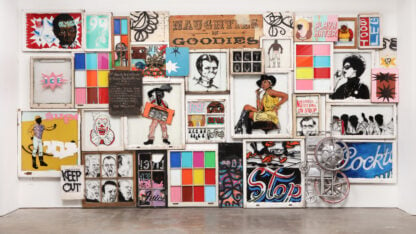When Indianapolis native Gabe McAteer first made the decision to relocate from his hometown to a larger metropolitan area, Atlanta was not originally at the top of his list. In fact, it was not on the list at all.
“When you think about it, everyone says ‘Hey, I’m moving to a major city,’ they usually think L.A., New York, Chicago and sometimes maybe Miami,” he said.
However, like many Americans across the country in late 2020, the 28-year-old management consultant and up-and-coming stand-up comedian began noticing the wide variety of cultural, economic and entertainment incentives that Atlanta had to offer.
“It took me half of 2021 to figure out the logistics of where [I’m] going to end up, and then pull the trigger and get down here.”
McAteer is one of thousands of U.S. residents who have relocated to the metro Atlanta area in recent years, with the region seeing over 60,000 new residents from April 2022 to April 2023 alone, according to a new report from the Atlanta Regional Commission.
And popular destination website Best Cities, which ranked Atlanta as #50 on their 100 Best Cities in the World List, notes that the city is only continuing to improve in infrastructure development, business opportunities and economic revenue to prepare itself for a new wave of residents.
After moving from Miami in early 2022, marketing director Lia Duran was pleasantly surprised by how well-prepared the city was for newcomers.
“I feel welcomed everywhere I go and it was kind of a shock when I first moved here,” Duran said. “You will never feel alone or alienated; it’s really my favorite thing about the city.”
Duran notes that in addition to the southern hospitality, the overall diversity of the city offers a wide amount of career opportunities and resources for people of color that seem endless compared to her previous residence.
“I see so many successful people that look like me, which is inspiring and just reminds me it actually is possible for me to get to that level,” she said.
And the same can be said for Atlanta’s vibrant social and entertainment hub, which has made it easier for many transplants to make great memories and form new friendships in their new surroundings.
“It’s been interesting seeing the film industry here continue to grow and continue to gain prominence,” said Shalet Monique, an actress, stunt performer and three-year resident of Atlanta. “There are a lot of opportunities opening up.”
“It’s a huge arts and cultural scene. There are a lot of different voices, a lot of different flavors that you can catch in Atlanta, which is a really important factor,” said McAteer, who credits the various opportunities in Atlanta’s comedy scene in particular as one of the primary reasons for his move to the city.
In addition, nightlife hotspots such as Edgewood Avenue, Buckhead and Midtown have garnered fast traction among young adults looking to explore the city.
“[Atlanta has] a large variety of clubs, bars and music venues, as well as many festivals, sports events and gatherings that celebrate art, music, food and cultural diversity,” Duran said. “You will definitely find something to do every weekend.”
However, that’s not to say Atlanta doesn’t come with its share of difficulties.
“I feel like in any city, crime is a big issue,” Duran said. “Although, for some reason it feels like it is very emphasized in Atlanta.”
With some residents complaining of property break-ins and robberies, and the Atlanta Police Department reporting that homicides in the city increased for three consecutive years from 2020 to 2022 (although homicides have decreased compared to this time last year), the fear of safety and protection has grown to become one of the top concerns for new residents.
Monique notes that as a mother of two boys, she is worried about the lack of gun restrictions in Georgia and the subsequent violence that she has witnessed throughout the metro Atlanta area.
“The gun violence and the car break-ins were the [biggest adjustments] … it’s not easy to trust people here,” she said.
Arriving in Atlanta in 2020, Monique has already gained traction in the film industry, with roles in the blockbuster sequel “Black Panther 2: Wakanda Forever” and holiday movie “It’s Christmas Again.”
Outside of the crime issue, the New Jersey native notes that while she was expecting the number of film and television opportunities to increase after the move, she was not expecting her standard of living to rise as well.
“At first, when I got here, my rent was under $1,200 for a two-bedroom gated community … and today, [prices] continue to increase,” she said.
“The cost of living does not amount to or equate to what we make in Atlanta. As a teacher [in New Jersey], I made $63,000 a year … here, teachers make like $10-15,000 less, but the cost of living continues to rise, but there’s no rise in income. It’s very financially straining.”
For McAteer, who planned an estimated six to eight months before making the transition to Atlanta, moving from a cost-efficient area in downtown Indianapolis to Midtown Atlanta brought some frustration.
“The leasing companies here are a little out of control … you build cheap apartments, frankly, and then you jack the prices up,” he said. “Some people are paying $2,100 for a studio and that’s just ridiculous. Would I prefer that it was [as] affordable as Indianapolis, of course. But, we’re in a major city; it just sort of comes with the territory.”
But no factor seemed to be more difficult to adjust to than the ever-infamous Atlanta traffic.
“Let’s talk about it,” Monique said. “Even no matter how early you leave out, it’s always an accident. No matter how much you prepare for stuff, the traveling here puts a dent in it.”
McAteer, however, thinks he has an explanation for the plight of Atlanta’s roadways.
“I have a theory as to why it’s so bad … you have a mix of drivers from all over the country that have their own nuances and own way of driving. You have the aggressive East Coast drivers and West Coast drivers and homebound Midwesterners,” he said. “It’s really remarkable.”









